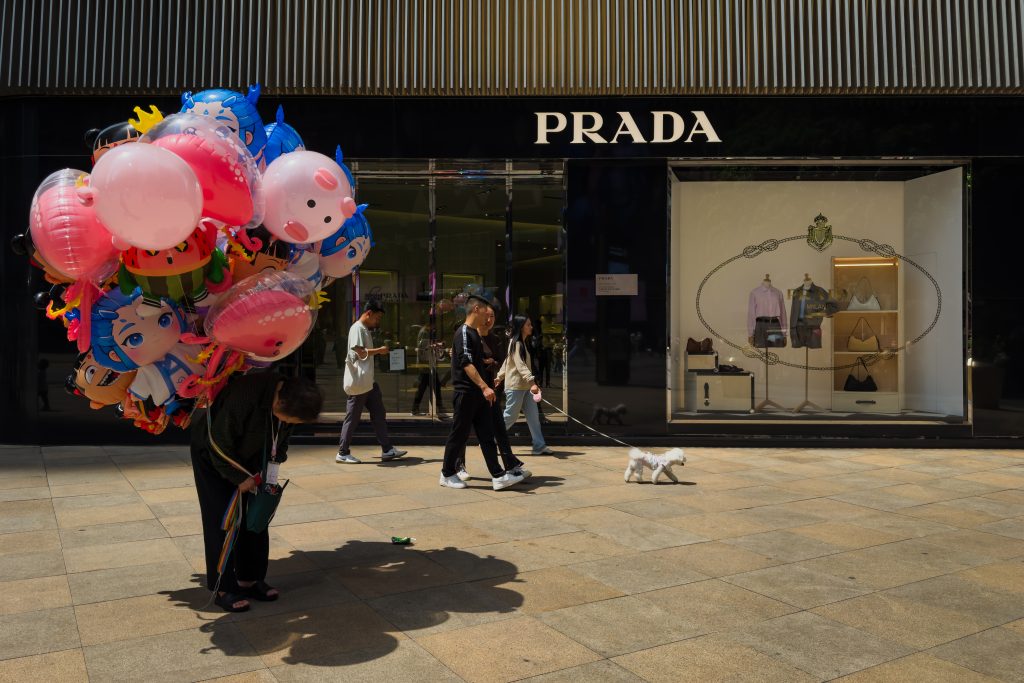
SOME luxury labels are pulling back from steep markdowns in China, seeking to rebuild an image of exclusivity to lure back wealthy shoppers whose spending remains less affected by economic slowdown.
None of the products sold by Kering SA’s Balenciaga on Tmall, China’s dominant e-commerce platform, were discounted in the first quarter of this year — or even during China’s biggest annual online shopping festival in November — according to data consultancy Re-Hub. That’s a marked contrast to the brand’s average discount of about 41% on Alibaba Group Holding Ltd’s-owned Tmall during the same periods the year before.
Versace, set to become part of Prada SpA after a $1.4 billion acquisition, cut prices for an average of just 3% of its products on Tmall in the first quarter, compared to 12% in 2024 — and the discounts weren’t as steep.
Italian luxury house Valentino Fashion Group SpA also lowered the number of discounted products available on Tmall for January, and pulled markdowns entirely in February and March.
The avoidance of discounts, which appear counter-intuitive given the market’s sluggish demand, marks an about-turn in luxury labels’ strategy in China.
“It’s a move from chasing traffic and short-term revenues to cultivating long-term brand affinity,” Re-Hub’s Chief Executive Officer Max Peiro said. “This shift is not merely operational—it’s foundational. Brands are investing in relevance, desirability, and premium experiences to foster long-term loyalty.”
Discounting is proving less effective in driving sales growth and risks undermining brand value, he added. Even the most exclusive premium fashion houses — including Hermes, Chanel and Louis Vuitton, which have typically eschewed online discounts — are stepping up efforts to maintain their exclusive images among wealthier Chinese, including offering more VIP-only events and shopping experiences like in-store museums.
Success in China is critical for luxury brands, which are also facing challenges in their other largest market — the US — where consumer sentiment has slumped to an almost five-year low amid uncertainty from Donald Trump’s tariffs.
Balenciaga, Versace, Valentino and Alibaba didn’t respond to requests for comment.
Tmall’s Changing Role
The changing pricing strategy also reflects luxury labels’ new understanding of Tmall and the crucial role it plays in shaping consumer perceptions about a brand in the mainland, said Jacques Roizen, managing director of China consulting at Digital Luxury Group.
As Tmall becomes more important for sales, brands’ pricing on the platform can help telegraph wider shifts in their China strategies. While ultra-premium brands including Hermes and Chanel still make most of their sales from physical stores, online channels are gaining increasing importance for lower-tier luxury labels.
The e-commerce market accounted for 46% of China’s total luxury sales last year and is expected to surpass offline sales in three to five years, according to consultancy Yaok Group.
As products return to full price, pressure will grow for some labels over how to offload excess stock, after some of last year’s deep Tmall discounts reflected panic over unsold inventory. And not all high-end brands are pulling back from sales — some, like Richemont’s Chloe and Capri Holdings Ltd.’s Michael Kors, are offering markdowns on Tmall similar to those that were available in 2024.
Chloe and Michael Kors didn’t respond to requests for comment.
Still, by curbing price cuts on the platform, a growing number of luxury brands are bringing their China pricing strategy more in line with their global approach — where they clear stock via discreet, private sales events that take place only limited times a year and there’s little visible public discounting.
“While smaller discounts may pressure short-term inventory clearance capabilities, the shift ensures a consistent brand message across all consumer touchpoints,” Roizen said. “Brands that adapt early to this strategy are likely to lead the market recovery.” –BLOOMBERG
The post Luxury labels ditch steep China discounts to rebuild brand value appeared first on The Malaysian Reserve.
